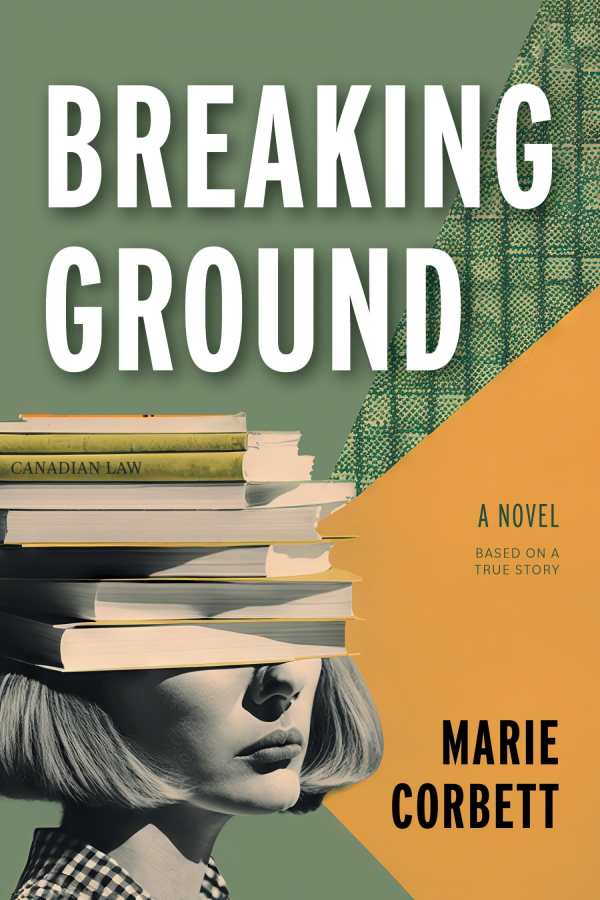Breaking Ground
A bright woman comes of age amid the turmoil of the 1960s in the aspirational novel Breaking Ground.
In Marie Corbett’s historical novel Breaking Ground, a woman discovers truths about herself and the changing 1960s world of free love and feminism.
The daughter of a single mother of three who cares for her but does not show her much physical affection, Carmel is a college student at McGill University. She hopes to become a lawyer in time. She works during the summers because her family is not wealthy, and she falls in love with Gary, a customer, while waitressing. She also ends her relationship with her college boyfriend, Mike, whom she deems boring; renounces Catholicism; participates in the feminist movement; experiences joys and setbacks while studying; has affairs with married men; and has two abortions.
The novel’s progression is directed by Carmel’s whims and personal growth: she enters into a nonmonogamous relationship with Gary; she travels with enthusiasm—and once with a fraudulent passport—following Gary through the United States and Mexico. Less appealing is Gary himself. Portrayed first as indecisive and then as possessive, he gives Carmel few assurances. He also does not defend her against his cruel mother, who calls Carmel a “dumb tramp.” And the men beyond him are also fleshed out in a superficial manner; Carmel has to contend with men’s guilt over their dalliances, but who the men are beyond those conflicts is not sufficiently shared.
The prose is pragmatic in form and tone, juggling the consequences that Carmel faces because of her choices in a straightforward manner. There are some deviations—the description of Carmel’s abortion, for example, is graphic, somewhat overshadowing the meaning of her choice (she knows that she is not ready to become a mother). And the novel becomes heavy-handed in covering the physical and emotional pain that Carmel experiences because of her choice; in tidy form, she learns that she believes in other women’s right to choose when and if they are ready to have children too. Indeed, her story becomes emblematic of how true feminists should act; she models women accepting responsibility for their lives and refusing to be dependent on archetypal, heroic men for their salvation. The novel achieves some satisfaction through Carmel’s maturation, through which she realizes that she craves meaning in her life and wants to make a difference in the world.
In the historical novel Breaking Ground, a college student who’s prone to love affairs provides for herself in the 1960s.
Reviewed by
Natalie Marino
Disclosure: This article is not an endorsement, but a review. The publisher of this book provided free copies of the book and paid a small fee to have their book reviewed by a professional reviewer. Foreword Reviews and Clarion Reviews make no guarantee that the publisher will receive a positive review. Foreword Magazine, Inc. is disclosing this in accordance with the Federal Trade Commission’s 16 CFR, Part 255.

